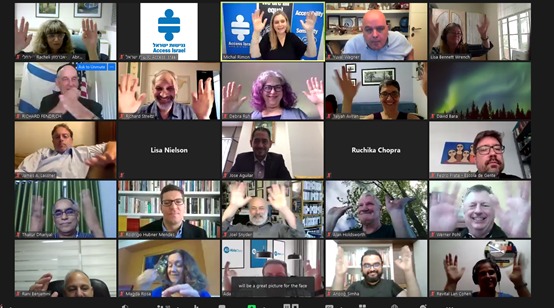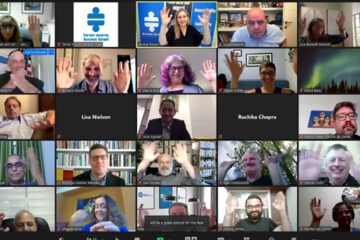Access Israel organized its 4th international webinar which focused on “Accessible and inclusive remote education during and post COVID-19”. Over 600 people from over 72 countries registered to the webinar which took place over zoom and was live streamed on Facebook
In the last months, schools all over the world had to close due to the pandemic and had to adjust to teaching remotely. This had been challenging for children in general but particularly for students with disabilities, as the remote teaching methods are often not accessible and inclusive. Therefore, Access Israel decided to focus the 4th international webinar on this important subject.

The webinar intended to discuss the greatest challenges for the students with disabilities, the schools and teachers and to offer possible solutions, technological ones as well as other innovative projects and approaches that enable accessible remote education.
At the webinar’s panel we heard from representatives from the Education Ministry in Israel, Austria, Namibia and the USA, on how they are ensuring that students with disabilities can learn remotely.
In addition, global tech leaders such as Google, Microsoft, Dell and Huawei shared their technological solutions that can help teachers and the students to learn remotely in an accessible and inclusive manner. Further, companies like Benetech, Language People and AbleDocs presented their innovative solutions.
In the last section best practices from all over the world were presented, such as the initiatives by the NYC Department of Education, the Hyperconnection approach by Escola de Gente in Brazil and the importance of audio description. Debra Ruh, of Ruh Global shed light on the importance of supporting refugees with disabilities to receive accessible remote education. Yuval Wagner, the founder of Access Israel shared his insights into preparing an accessible lesson and Rodrigo Mendes shared his research on protocols for inclusive education.
The five hour long event on accessible remote education, with 20 speakers and over 600 registrants from 73 countries was a great success. We hope that the event helped the sharing of knowledge in the accessibility field and will promote accessible remote education for students with disabilities around the world.
Thank you for to all speakers for their interesting lectures!
Thank you for Language People for providing sign language interpretation, thank you Verbit for providing live captioning.
Thank you to the sponsors of the webinars; the American Embassy in Tel Aviv, Google, AbleDocs, A-Z and Hadesk.
Thank you to all our partners Zero Project, FAISR, the Valuable 500, Hilfsgemeinschaft fur Blinde, Inable, IAAP, and the Christopher Reeve Foundation.







